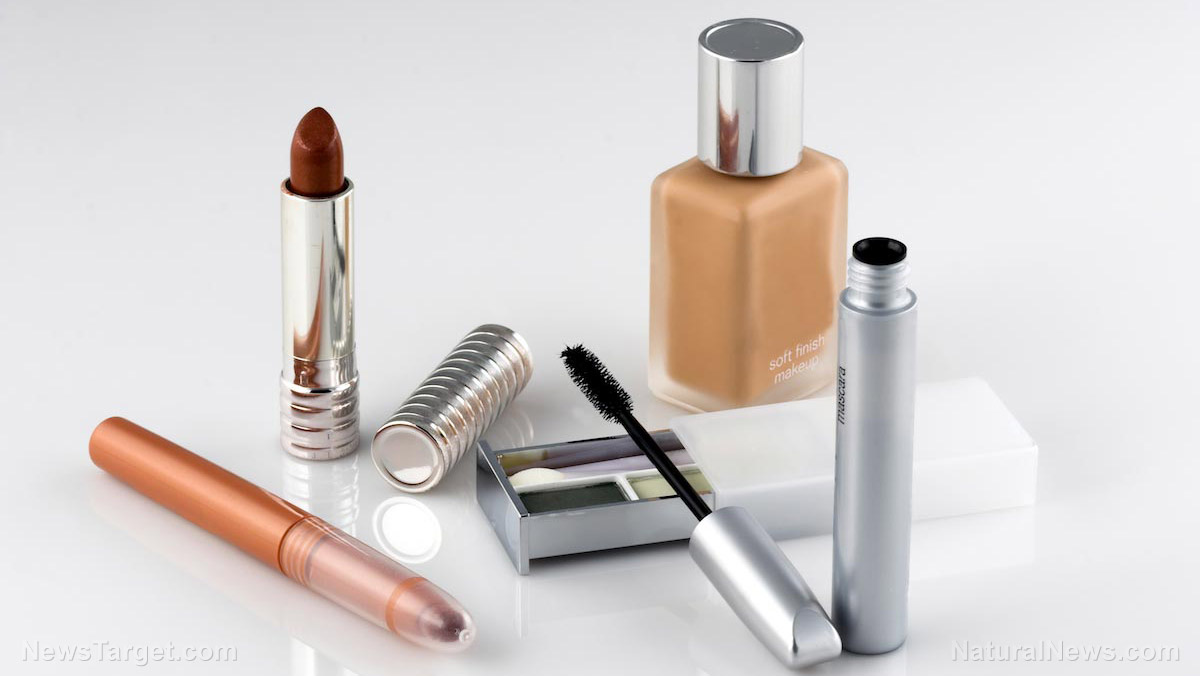The cost of looking good: Experts warn cosmetic testers carry disease
02/22/2019 / By Jhoanna Robinson

It’s not unusual for someone to try out a product first before heading to the cashier to pay for it, especially if there’s a tester for the item. However, would you still consider putting something on your lips and skin if you knew that it has been used by a lot of people already?
Experts say, “No! Don’t use that tester!” According to them, eyeliners, lipsticks, and mascara wands that have been left in the open for public use may become a breeding ground for the Herpes simplex virus and the Salmonella virus, both of which cause grave diseases; the former is likened as the gift that keeps on giving (i.e., herpes has no known cure) while the latter causes a sickness that may require hospitalization.
“There is a real risk of catching bacterial infections and herpes, as we all have different organisms living on us and one cosmic tester can be used by 30 or 40 different people, which spreads the risk of infection,” says Dr. Amreen Bashir, a microbiologist from Aston University in Birmingham, England.
Experts say that when you use a lipstick tester, you are actually picking up a small amount of saliva of the person who used the lipstick tester before you and the people who used that tester before her. So, imagine if one of the people who used that tester had herpes? Now the ball really starts rolling.
Herpes is a highly contagious disease that can be characterized by having blisters around the mouth. It is usually sexually transmitted, but as the herpes simplex virus can live off of saliva, you can get it from merely drinking a glass that was used by a person with the disease. More than two-thirds of the world’s population have herpes.

“Herpes causes blisters on the lips and around the mouth that can last up to 10 days. Lipsticks and make-up brushes that touch these parts of the face can spread the infection to other people,” Dr. Bashir says.
Also, eyeliners or mascara wands that were used by people who have conjunctivitis could likely pass the same disease to you, if you so happen to use the item after them.
“Studies have revealed that 43 percent of eyeliners and mascara wands contain contaminants. I know many friends who have been left with a “pink eye” after sharing mascara or using ancient mascara that has been sitting in their make-up bags.”
In a study that was conducted in 2016, experts found out that 67 cosmetics contained the staphylococcus bug, which while it can live as a dormant inhabitant in the skin, can also transmit a more dangerous version of itself – methicillin-resistant Staphylococcus aureus, the deadly superbug MRSA.
“If all of these horror stories tell us one thing, it’s to stay away from sharing make-up products, both among your friends and especially in cosmetic stores,” Dr. Bashir concludes. (Related: Xenoestrogens in make-up and consumer products put women at risk of breast cancer, miscarriage, diabetes and more.)
Woman sues beauty line after getting herpes from one of its products
In 2017, an American woman filed a lawsuit against a beauty firm, saying she caught the herpes simplex virus by using one of their product’s testers.
A branch of Sephora, a Paris, France-based chain of cosmetics stores, in Hollywood in Los Angeles, California is being sued by a woman who claims she went to their store in October 2015, tried on a lipstick from the tester display, and ended up getting herpes on her lips.
In her lawsuit, the woman says that Sephora is responsible for her affliction as other companies would have provided individual samples or have had skin care professionals on hand to give assistance to customers, while Sephora did not extend the same service.
Sephora has yet to make a public statement on the matter.
For more stories on chemicals and their day-to-day applications, visit Chemistry.news today.
Sources include:
Submit a correction >>
Tagged Under:
Cosmetics, eyeliner, Herpes, lipstick, Makeup, mascara, Staphylococcus
This article may contain statements that reflect the opinion of the author





















